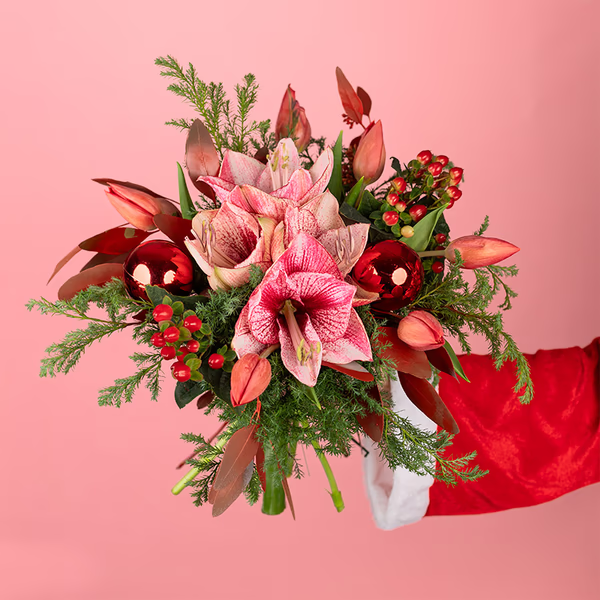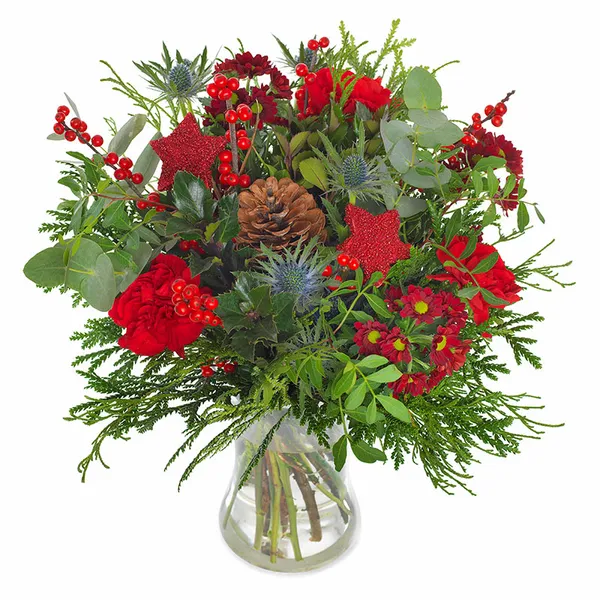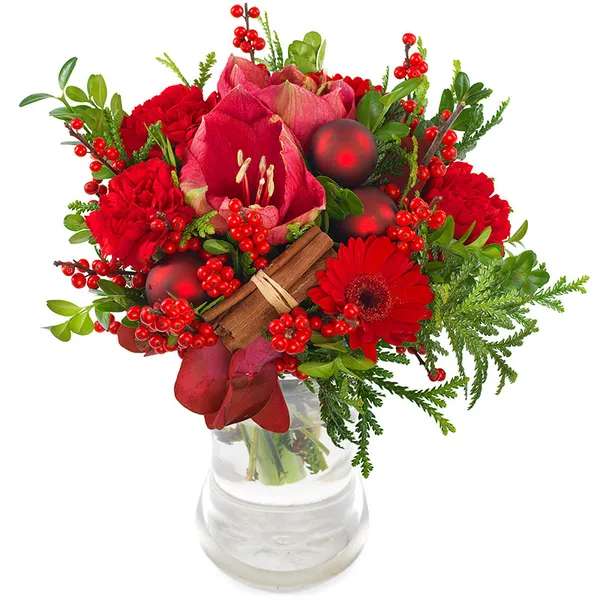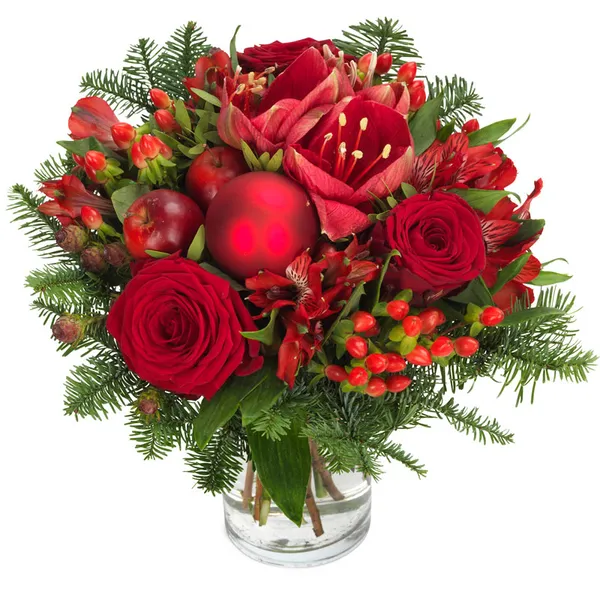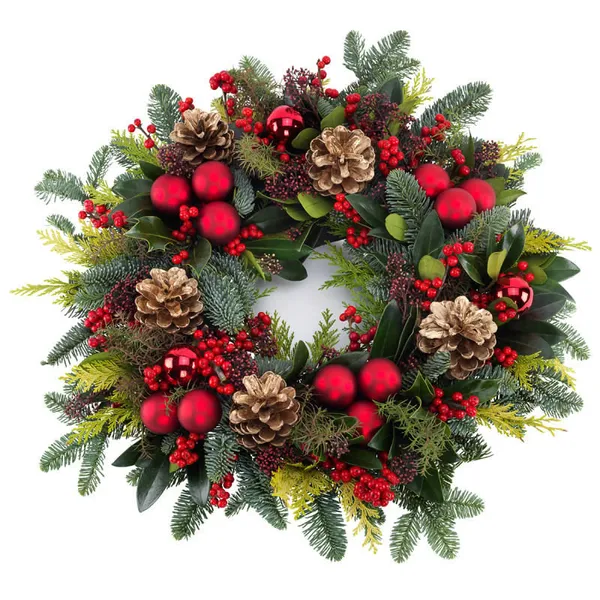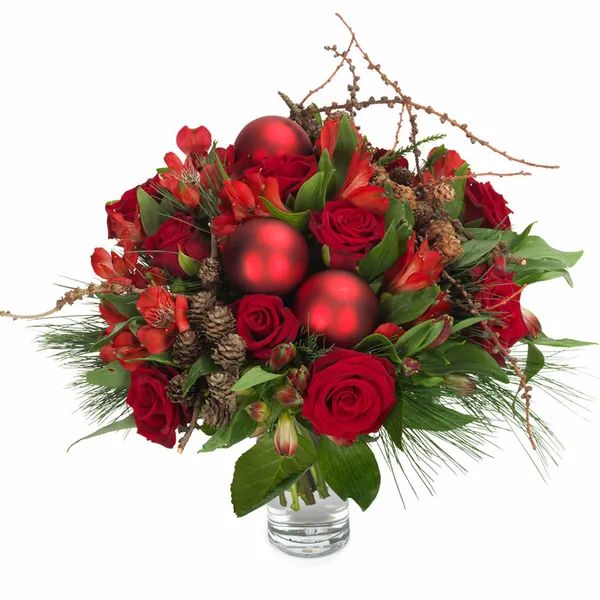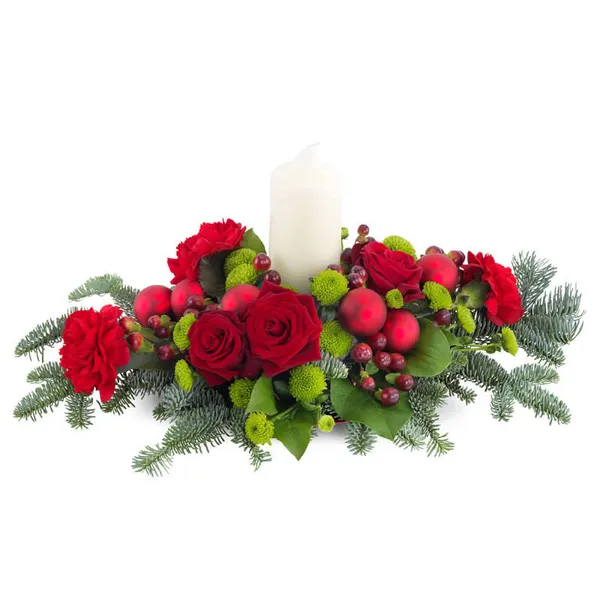🎄 Why Flowers Belong on Your Christmas Menu
Christmas is a celebration of light in the darkest time of year — warm rooms, glowing candles, long dinners shared with people we love. But there’s one ingredient that still doesn’t get the place it deserves at the table: flowers.
Flowers can shape the atmosphere of your festive feast just as much as music, lighting, or the food itself. They elevate the senses, strengthen connection, and bring a touch of nature’s magic into the heart of winter.
Here’s why flowers truly belong on your Christmas menu.
✨ They set the emotional tone of your celebration
Long before anyone tastes the food, guests feel the mood of the room: the warmth, the welcome, the feeling of celebration.
According to research, flowers instantly lift the spirit, reduce stress, and create a sense of closeness — all things we hope for around the Christmas table. A simple bouquet or winter centrepiece doesn’t just decorate; it sets a gentle emotional foundation for the entire evening.
Think of flowers as the quiet hosts of the evening: they set the mood long before the food arrives.
🌿 Flowers subtly enhance the dining experience
Just like a dash of spice or a final drizzle of sauce, flowers influence how we experience a meal, not by flavour, but by atmosphere.
Gentle winter scents such as eucalyptus, pine, rosemary or even winter jasmine bring a feeling of freshness and warmth without overwhelming the food. Meanwhile, colour plays a surprisingly strong role: reds energise, whites calm, greens ground, and touches of gold make everything feel festive and abundant.
When chosen with intention, the flowers around your dishes support them the way great lighting supports a beautifully prepared plate.
🌟 They’re rooted in centuries-old winter traditions
Many of the flowers we associate with Christmas carry deep symbolic meaning:
- Poinsettias — symbols of hope and rebirth
- Amaryllis — admired for strength and winter resilience
- Hellebores (Christmas roses) — tied to legends of generosity
- Holly & mistletoe — ancient icons of protection and renewal
By adding them to your table, you’re not just decorating, you’re continuing a cultural ritual that spans centuries. Your Christmas menu becomes part of a story bigger than the meal itself.
🍰 Edible blooms add a touch of culinary magic
More chefs than ever are embracing edible flowers, turning ordinary dishes into something memorable. A few delicate petals can make desserts glow. A sprig of lavender can elevate a cocktail. A tiny pansy can transform a simple tart into a showpiece.
Used sparingly, edible flowers transform ordinary dishes into unforgettable ones, creating surprising moments of beauty that stay with your guests long after dinner ends.
❤️ Flowers help bring people closer together
A beautiful bouquet or centrepiece becomes more than visual decoration, it becomes a moment of storytelling:
A grandmother recognising a bloom from her childhood. A friend admiring the colours. Someone mentioning how the scent reminds them of a winter from years ago. Flowers make the table human, they give people an easy, warm way to connect before the meal even begins.
In a season built on togetherness, nothing could be more fitting.
🍽️ How to weave flowers naturally into your Christmas table
You don’t need elaborate centrepieces. You don’t even need a big budget.
A few simple choices can change everything:
- A low arrangement that lets guests see each other
- A line of pine or eucalyptus as a natural table runner
- A single bloom or sprig at each place setting
- A small vase on the drinks station or dessert table
The goal isn’t perfection, it’s warmth. Nature does the rest.
🌹 The real reason flowers belong on your Christmas menu
Winter can feel heavy. Dark. Quiet. Flowers change that. They remind us that life continues, even in the coldest months. That colour still exists. That beauty still grows, even when we least expect it.
Frequently asked questions
Flowers instantly lift the mood, add warmth, and create a welcoming atmosphere. Research shows they reduce stress and boost happiness — perfect for festive gatherings. They also bring colour, scent and natural beauty to your Christmas menu.
Popular choices include amaryllis, poinsettias, hellebores (Christmas roses), winter greenery like eucalyptus, pine, holly, and berries. These flowers match the season and last well indoors.
Not if you choose the right ones. Stick to lightly scented or unscented flowers near food. Eucalyptus, pine, and rosemary are ideal because they add freshness without overpowering the meal.
Yes — edible flowers like pansies, violas, lavender, rose petals and borage can be used on desserts, cocktails and appetisers. Always ensure they’re food-safe and organically grown.
Use low arrangements so guests can see each other, or create a simple runner with greenery. Add small vases, single stems at each place setting, or mix natural materials like pine cones and berries for a warm, festive look.
Yes. Many Christmas flowers — such as holly, mistletoe and poinsettias — have centuries-old meanings linked to protection, renewal and winter celebrations. Adding them to your table continues this long tradition.
Classic Christmas palettes include red, white, green and gold. For a modern look, you can use blush tones, deep burgundy, or winter pastels mixed with greenery.
Absolutely — holiday bouquets make wonderful gifts, and you can easily send them through Euroflorist. They bring warmth into the home and are a thoughtful gesture during the colder, darker months.
